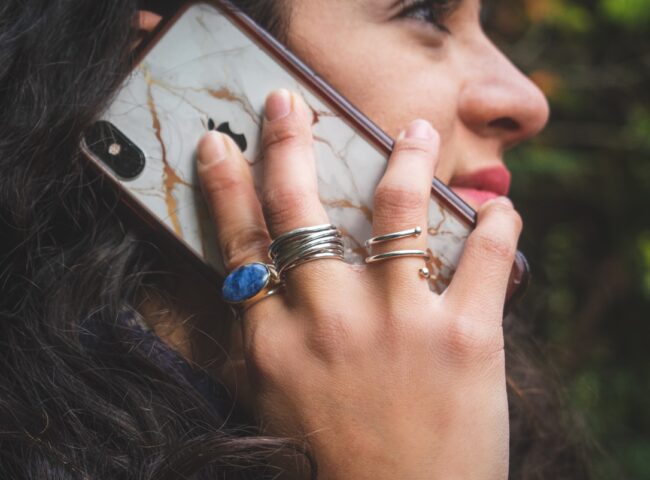Calling cards are still one of the most popular ways to contact friends and family overseas especially those who live in developing countries or have unreliable or even no internet connections. That said the calling card industry has its traps and pitfalls that often catch the average consumer off-guard leaving them out of pocket – you’d be surprised at the number of ways some calling card companies are able to line their pockets.
The best insurance against being ripped off is to follow a certain number of rules, following these rules will give you a greater chance of getting your money’s worth when it comes to buying a phone card.
1. (Generally) avoid calling cards with connection fees

What is a connection fee?
A connection fee is a charge that happens once you make a successful connection whether that be the person you wish to speak to or a voicemail. This is also another fee closely related that is called a disconnection fee which as
I typically recommend avoiding these cards since it is often used as a way for calling card companies to pull in more profit from each call. Are cards with connection fees to be avoided completely? Not necessarily.
“Some calling card companies offer phone cards that come with connection fees but offer slightly reduced calling rates but always check to see whether this is still a good deal based on the length of time you will be talking for.” JT, nzphonecards.co.nz These are geared towards people who tend to make phone calls that last for 60+ minutes, in this case you may find that you end up saving a lot of money over time.
2. Check for hidden fees
Since the calling card industry operates on incredibly thin margins with some cards operating on breakeven or even at a loss (depending on where you are calling to) these companies need to recoup that money.
There is nothing wrong with this and is common business practice across all industries. Inside the phone card industry, these will sometimes come in the form of hidden fees, these hidden fees are generally not an additional value-add for the customer and are more closely related to scalping.
For example, an Australian consumer watchdog group discovered that:
“48% of cards applied a daily service charge or fee once the card is activated” Nearly 50% of phone cards that were bought and tested charged the customer an additional service charge just for using the phone card.
Hidden fees may be advertised as ‘maintenance fees” or ‘admin fees’ kinds of like how they try to hide sugar inside of food labels by giving it different names. Either way these are junk fees plain and simple and I would avoid these types of calling cards.
3. Check the expiration date

This one isn’t nearly as common but it does happen from time to time and that is buying card that has already expired. These are typically purchased from retail stores (newsagents, supermarkets, etc.).
Now you may think that the retailer is running some kind of scam but in reality, they are completely clueless as to the ins and outs of the cards they’re selling – and yes they should know but they are operating under the assumption that the cards expiration date begins the countdown timer upon activation. This may not even be the calling card companies fault either, but the best thing to do is check the expiration date.
4. If I have technical issues how long to resolve?
This one is super important. I’ve purchased many a card that have unfortunately had technical issues in one form or another:
- Low quality sound
- Cross-lines (i.e. connecting to a completely different person in a different country)
- Connection dropping off
- No connection at all
You name it I’ve experienced it. The real question is how can this be resolved quickly and with the least amount of headache. When you’re purchasing a phone card you have to realize that the company are not using the same carrier lines to connect your calls as the big telco companies, this is one of the ways they are able to offer such cheap calling rates.
They are using alternative carrier lines that may offer a slightly lower quality sound and from time to time experience other tech issues. Before you purchase a phone card ask the retailer what happens in this scenario? Is the retailer going to buy back the card or are they able to contact the service provider and have them resolve the issue?
Also, how long will this take?
If you’re talking to a retail store owner they’ll likely not know the answer to how long it will take and to be honest for most calling card companies this can take days or even weeks to resolve some of these issues.
My advice is to buy direct from a calling card service provider that way you can ask their customer support team these questions, they will have the answer. The best calling companies will be able to resolve these issues that same day and some companies will be able to resolve this within 30 minutes which is amazing.
Compatibility with Devices
Compatibility with devices is a crucial factor to consider when buying a calling card, as it determines whether the user will be able to make calls without any issues. Failing to check compatibility can result in wasted money, connection issues, and a frustrating user experience.
Fortunately, many calling card providers offer compatibility information on their websites, and users can also find compatible devices using a people finder tool.
5. Which is the best card for the country I wish to call?

Most calling cards will specialize in cheap rates for specific countries and this will be obvious most times based on either the graphic on the card or the name of the card itself. Other times this may not be obvious so you will need to check the calling rates for the country or countries you wish to call to.
If you’re buying from a retail store this may not be available so you’re going to have to ask the retailer, but as that same Australian consumer watchdog organization discovered:
“94% of salespeople couldn’t give the customer any information about calling rates”
So good luck with that
My recommendation is to use an online calling card provider since they will have all of their calling rates available some of them will have a useful rate finder tool where you just enter in the country you wish to call and it’ll pull up the best cards for said country.
